Top 6 Dominica Culture, Customs and Etiquette
The magical island of Dominica is a remote and stunning destination for anyone looking for adventure and exploring its unspoiled volcanic landscape, jungle and ... read more...tropical beaches. A little-known destination often confused with the Dominican Republic, this 'natural island' offers a particularly exotic feel to visitors. Famous for its rugged terrain, mountains and forests, this distinctive landscape has also contributed greatly to defining aspects of Dominica's history and culture over the centuries. Here is a list of Dominica culture, customs and etiquette.
-
The very first thing in this list of Dominica culture, customs and etiquette is religion. Dominica's indigenous inhabitants were the Island Caribs before Europeans arrived. They were polytheists who worshiped various aspects and objects of nature. The Spanish were the first Europeans to try to colonize the island. The indigenous inhabitants, however, drove them off the island. Later, both the French and the English became interested in Dominica. The French did not establish permanent settlements on the island until the latter half of the 17th century. Thousands of African slaves were brought to the island by the French to work on the coffee plantations they had established. The French brought their religion with them as well. Roman Catholicism was soon adopted by the African slaves and a large section of the Island Caribs living in Dominica. Protestantism became popular in the country with the arrival of the British. In 1761, the British conquered the island and in 1763, France ceded the land to the country.
Religious Beliefs: Roman Catholicism is the religion of over 70 percent of the population. None of the Protestant religions (Methodist, Pentecostal, Seventh Day Adventist, Baptist, Anglican, Jehovah's Witnesses, Church of God) exceed more than 5 percent. Carib and West African beliefs in spirits and obeah (witchcraft) persist despite church disapproval. Rastafarianism is followed by some.
Religious Practitioners: Native Dominicans are now being trained as clergy, but practitioners of the formal religions, particularly Catholic priests and nuns, have generally been foreigners. Obeah practitioners or seers ( gadè ) are native or are from nearby islands.
Rituals and Holy Places: The religions hold services in their respective churches. Residents of smaller villages often must travel to larger villages to attend church. Some villages have stone Roman Catholic churches dating to the seventeenth and eighteenth centuries, although new ones continue to be built in other villages. Many Protestant churches, especially Pentecostal and Seventh Day Adventist, have been built in the latter decades of the twentieth century. The frequency and days of worship depend on the religion.
Death and the Afterlife: Many traditional practices and beliefs, such as the Carib custom of burying the dead in a fetal position, have been abandoned in favor of Christian traditions. All Saints Day is observed by visiting cemeteries and lighting candles on the graves of deceased loved ones.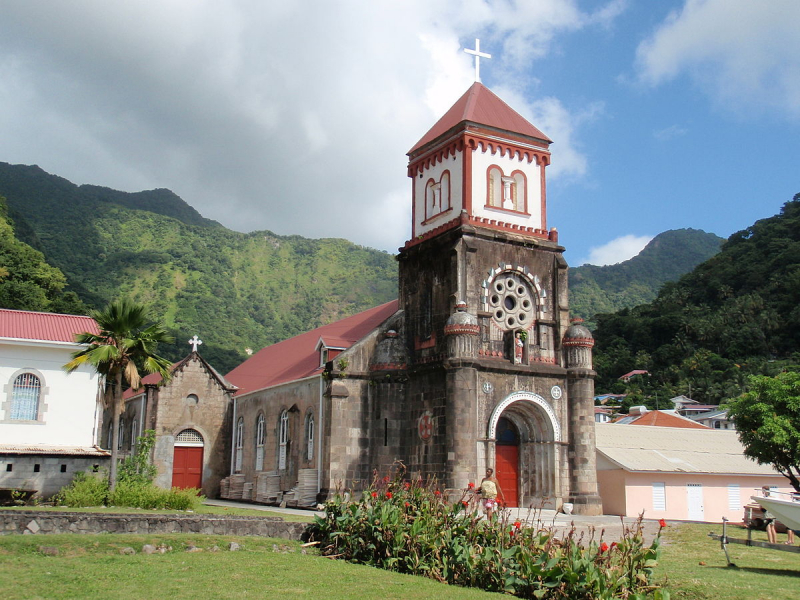
visitdominicanrepublic.org 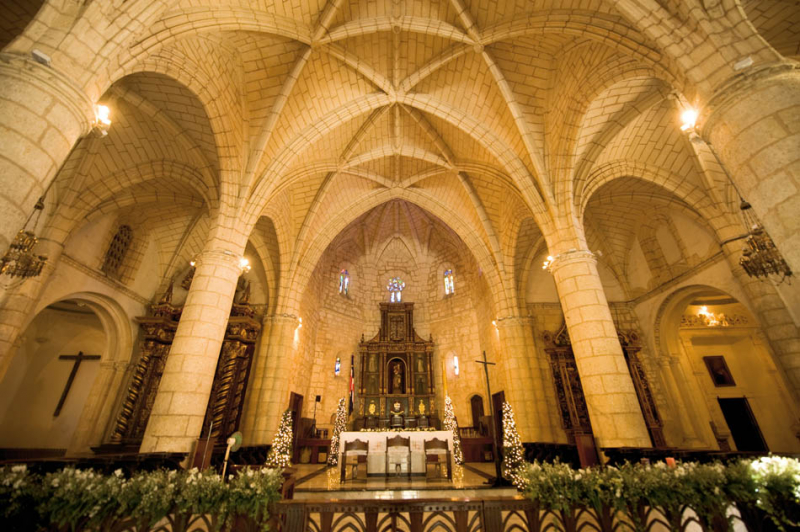
visitdominicanrepublic.org -
Marriage: The law allows only monogamous marriages. Marriage is based on personal preference, though it is generally limited by social class and religion. Despite church opposition, many young people have children, often with multiple partners, and may cohabit for years before legally marrying. Regardless of their relationship with the mother, men are expected to contribute financially to their children's upbringing. Except in the upper classes, marriage usually occurs after the age of thirty. Divorce is legal, but it is uncommon and frowned upon.
The domestic unit: A man or a woman can lead the household. Households can be made up of one person, a woman and her children (who may be visited by her boyfriend), a nuclear family with either married or cohabiting parents, or an extended household with several generations. Several families may have separate homes but share a common piece of land or yard with an outdoor kitchen or other resources.
Inheritance: The predominant inheritance practice is "family land," in which a parcel of land is owned jointly by descendants of the original owner, either male or female. Use of the land is determined by consensus or family tradition. Oral agreements frequently lead to disputes, but no part may be sold unless all co-owners agree.
Kin Groups: Kin groups extend beyond the household to include those related through blood lines, marriage, and friendship both within and outside the village; Dominicans frequently say that everyone on the island is related. Financial and material resources are often shared, and child fostering is common. Many households depend on money sent from relatives who have migrated overseas.
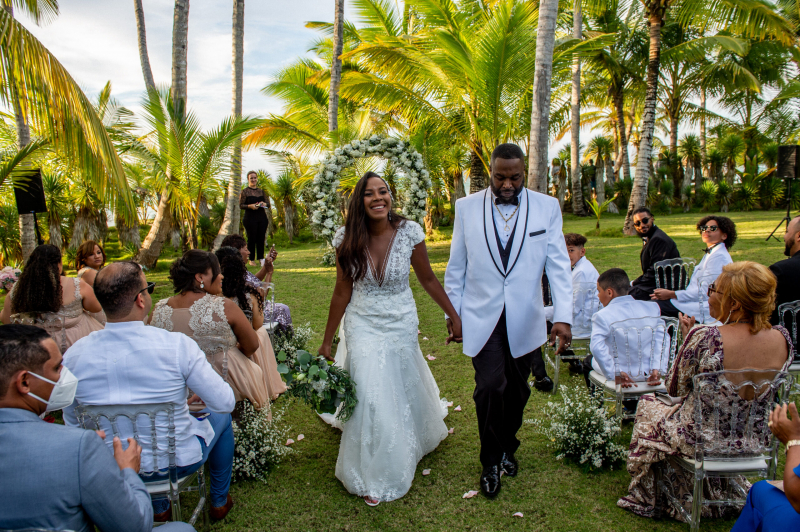
pinterest.com 
pinterest.com -
Dining etiquette for getting started: Start eating only after the host says, "Buen provecho!" Knives and forks can be used in either the American or European styles (switching) (keeping the fork and knife in the same hands throughout the entire meal). When the meal is finished, the knife and fork are laid across the plate parallel to each other. If you leave both utensils on the plate for an extended period of time, it indicates to the waitstaff that you are finished, and your plate may be removed from you. Alternatively, if you place your cutlery on either side of the plate, it indicates that you haven't finished; but if you really are, the host might interpret this as a sign that you were not happy with the meal.
Dining etiquette for using your hands: When not holding utensils, your hands are expected to be visible above the table: this means you do not keep them in your lap. Rest your wrists on top of the table.
The most prestigious seat is at the head of the table, with the most important guest seated immediately to the host's right (women to the right of the host, and men to the right of the hostess). If a couple is hosting, one will be at each end of the table. Men and women are seated next to one another in the European tradition, and couples are frequently broken up and seated next to people they may not have previously known. This is done to encourage discussion. When women enter a room, men typically rise and continue to hold doors for them, allowing them to enter first. Keep reading to explore more about Dominica Culture, Customs and Etiquette.

candacesmithetiquette.com 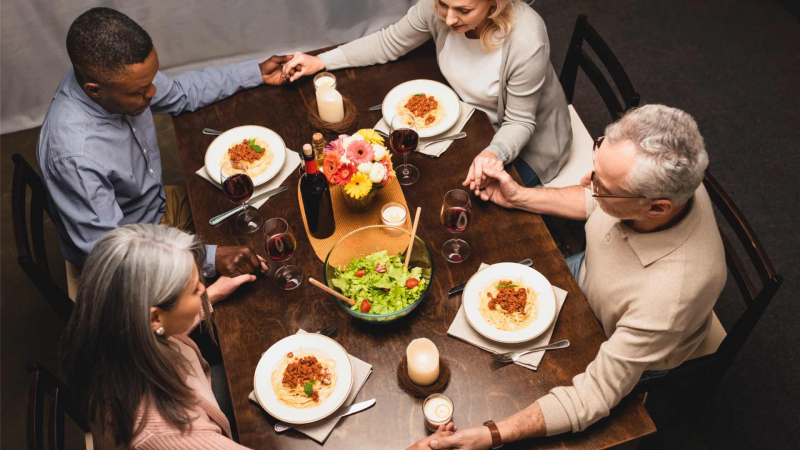
shuttledirect.com -
Business Etiquette is also an interesting thing you should know when learning Dominica culture, customs and etiquette. In the Dominican Republic, personal introductions are an essential part of business etiquette. Before any business discussion can begin, it is expected that each person be properly introduced. It is customary in business etiquette for participants to greet one another by crossing their hands and shaking them; this is true for both introductions and business discussions. It would be a good idea to conduct business in the Dominican Republic by learning and following the rules listed below.
Marking a Break:
- In the Dominican Republic, people are always working! It is a nation that thrives on work ethic and it would not be uncommon for people to work 10 to 12 hours a day, and perhaps even seven days a week. Even when the work day gets over (usually around 5 p.m.), Dominicans will most likely continue working through the night in the comfort of their homes, so it will be important to get accustomed to this constant work ethic. To mark a break, it is customary in the Dominican Republic for people to meet in nice restaurants and to chat over a relaxing drink. One should avoid showing up without getting acquainted with the surroundings. It is best to first introduce yourself to the group and then to extend the invitation to the group. People are very keen to get acquainted and so it would be wise to follow suit.
Avoiding Complexity:
- The Dominican Republic is a nation with a large proportion of the population being below the poverty line. In a land where money is scarce, people are quick to act on their impulses without much thought or worry about the consequences. For this reason, it is a common occurrence to see Dominicans being carried away by sudden impulses. For this reason, it is very important to think and act with plan and prudence. Doing business in the Dominican Republic can be very satisfying and profitable, but not if one is not careful; there is a danger of losing everything one has acquired.

sjgrand.cn 
morillosurielabogados.com -
As previously stated, the Dominican Republic is a Spanish-speaking country with its own Dominican Creole language (also known as Dominicanismos or Dominicanese). It is thus polite and proper etiquette to learn some conversational Spanish before leaving on your vacation or visit. Your Dominican counterparts would regard this as a respectful and gracious gesture.
Learning a few key phrases will also help you meet, greet, and address people in the Dominican Republic. When meeting someone in the Dominican Republic, both men and women should shake hands, though it is best to wait for the lady to offer her hand first. Following the handshake, a salutation such as "Buenos dias" (good day) or "Cómo está?" (formal "how are you?") or "Cómo estás?" (informal "how are you?", used among children or friends) should be used. Learning some conversational Spanish will also enable you to distinguish between formal and informal forms of address, particularly the use of 'usted,' so that you do not accidentally offend or appear disrespectful. It is also good manners to try to make a point of smiling and maintaining eye contact during introductions.
When addressing or introducing someone, it is polite to opt for a more formal title such as Senor (Mr.), Senora (Ma’am/Madam/Mrs), followed by the family name if it is known. Remember that family is a very important aspect of Dominican culture, and seniors are given the utmost respect. Therefore you should always make a point of showing a degree of undue respect to elders.
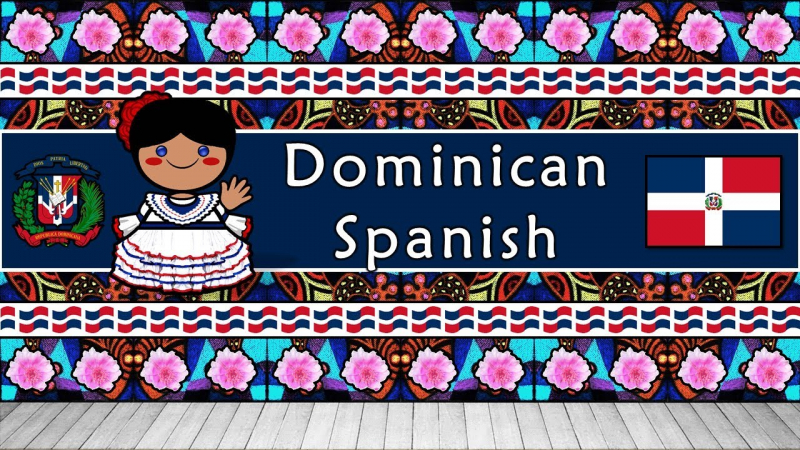
twinkl.com.hk 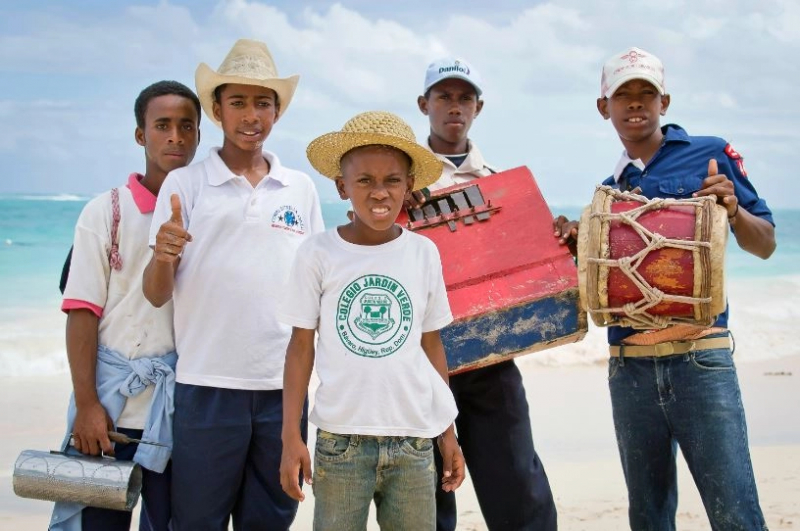
twinkl.com.hk -
As in many Latin American countries, how you dress and your overall outward appearance is extremely important. The Dominican Republic maintains class divisions, many of which are determined by race, familial heritage, and financial status. This is not the case in more cosmopolitan cities and densely populated urban areas.
As a result, you should be aware that clothing is thought to be one of the most important indicators of social status, which in turn denotes accomplishment and success. Designer brands are particularly popular, but this does not imply that you must wear them all of the time! In general, dressing modestly and attempting to appear smart and well-groomed - even when dressed casually - will be perceived as upholding your personal appearance and self-respect.
Beach and swimwear, such as bikinis or swimming trunks, are perfectly acceptable for wearing on the beach, but should only be worn on the beach. Swimwear should never be worn in public, including cafes and restaurants. If you intend to eat out while at the beach, bring a change of clothing and keep in mind what is considered modest and appropriate casual wear.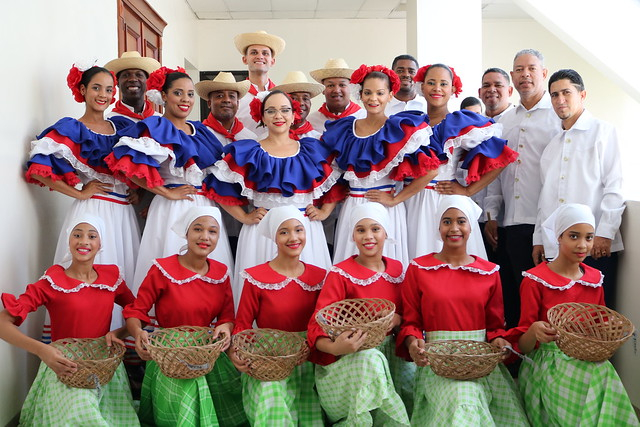
upf.org 
sunrise-villa.com



























